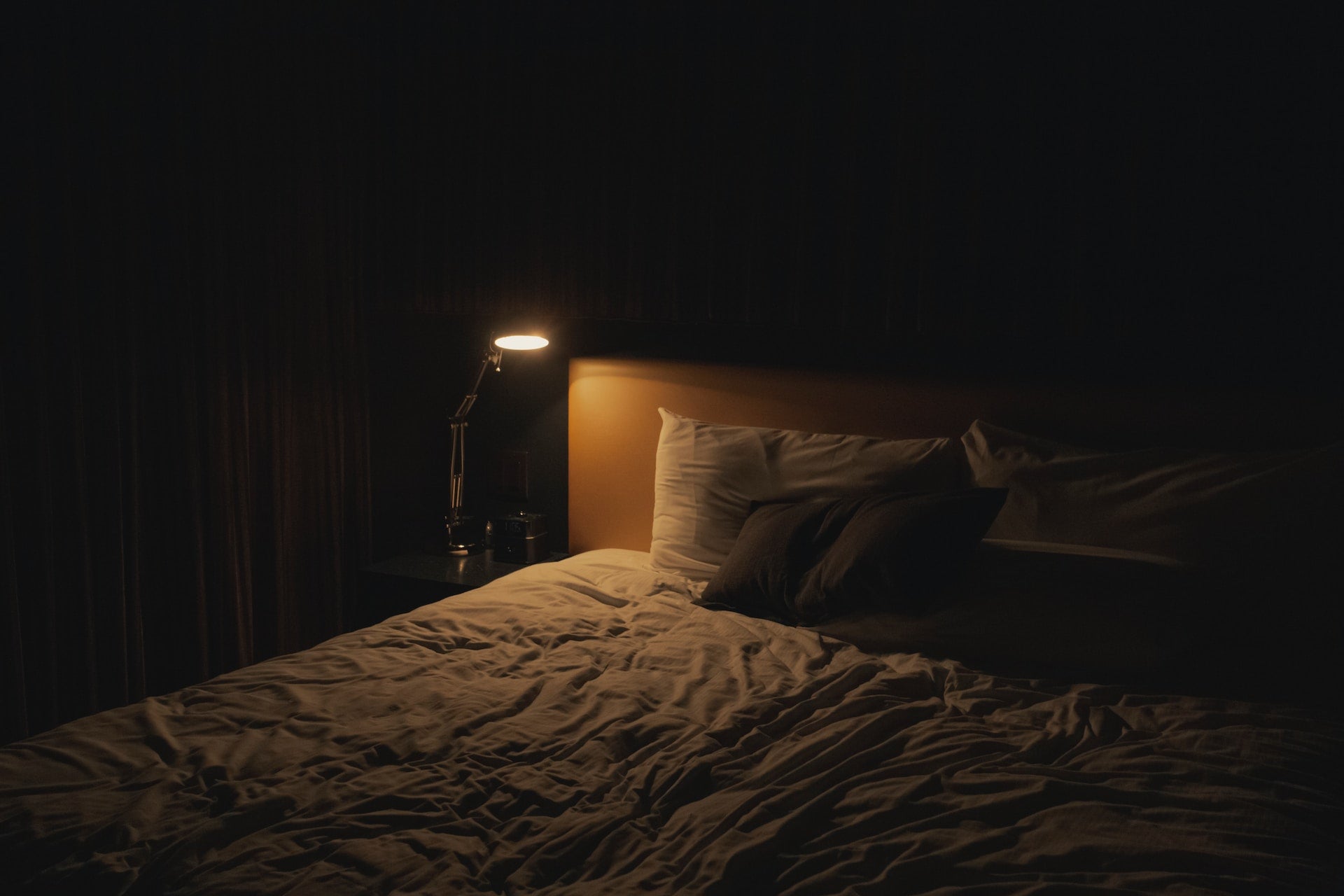There are a lot of things that can make it hard to get enough sleep at night. After all, if you don’t take steps to treat obstructive sleep apnea, you could experience dozens of nighttime awakenings due to breathing disruptions.
But if you can’t get your mind to relax, you might also find it impossible to fall asleep quickly as well, further compounding sleep-related issues.
By understanding the reasons why your mind won’t stop racing at bedtime — as well as key strategies to relax — you can fall asleep faster and enjoy higher-quality sleep.
Why Won’t My Mind Stop Racing?

There are a variety of culprits that could cause you to “overthink” when all you’d like to do is drift off to sleep. A variety of mental health conditions, including depression, anxiety, ADHD, OCD, and PTSD can make you more likely to experience racing thoughts before bed.
Overthinking is often situational in nature. Periods of stress (including major life events), as well as times when you are anticipating to exciting plans or events, can result in your thoughts gravitating to whatever you are dreading or looking forward to. Other situational issues like feeling overworked or isolated can also lead to overthinking.
Unfortunately, getting your mind to stop racing is often easier said than done. Trying to suppress those unwanted thoughts that are keeping you awake can actually make them more persistent and harder to get rid of.
If you’re not careful, it becomes all too easy to slip into a routine of worry or anticipation, where you consistently let your thoughts run wild and keep you from being able to fall asleep in a timely manner.
When this keeps you from getting the recommended nightly amount of sleep, the long-term effects can be severe (especially if you also struggle with other sleep disorders like sleep apnea). Insufficient sleep can increase your risk for (or worsen) anxiety and depression, as well as increase your risk for heart disease, high blood pressure, stroke, and more.
Quite often, these consequences create a vicious cycle, where they create further difficulties in falling and/or staying asleep.
Best Practices For Relaxing Your Mind

While racing thoughts at bedtime can be a frustrating thing to deal with, there are fortunately some tried and a true practices that can help you relax.
Much of what you can do to help your brain at night depends on what you do during the day. For example, are you getting enough exercise? Even though exercising works your body rather than your mind, getting a quality workout in during the day can help you fall asleep faster. Essentially, your body will be more tired than it would otherwise be, which allows you to drift off to sleep rather than focus on those distracting thoughts. A warm bath or a yoga or meditation session before bed can similarly relax both the mind and body so you can fall asleep faster.
Another common practice is to schedule “worry time” for a roughly 30-minute period sometime before bed (ideally at least an hour before bed). Essentially, dedicate this time to listing out your worries and stressors, and then think through potential solutions for them. This could entail writing a detailed “action plan” with several steps, or it might involve examining overlooked feelings so you can better understand why you are stressed or worried. You could also write out a list of potential outcomes related to your stressors to help put things in perspective.
Taking the time to recognize and validate these feelings before bedtime can help you resolve stress and worry before you try to go to sleep. The goal is that by addressing these concerns earlier in the evening, they won’t pop up and stress you out before going to bed.
Other “wind-down” techniques can also help you practice mindfulness and relax your thoughts before bed. Writing in a journal each night can also serve as a form of mental and emotional release by letting you write out your thoughts and feelings about the day’s experiences. Some people might also benefit from keeping a notepad next to their bed if they need to write down late-night thoughts.
While these techniques can be useful, you’ll likely still encounter trouble falling asleep from time to time. Placing a white noise machine in your room can help quell racing thoughts by having you focus on a steady, repetitive noise. And if all else fails, consider getting out of bed for a few minutes as a kind of “reset.” Walk around the house, read a few pages from a book, or do a few simple stretches before getting back in bed and trying again.
Fall Asleep, and Stay Asleep
By taking steps to relax your mind before bedtime, you’ll have a much easier time falling asleep quickly so you can get the recommended seven to nine hours of sleep that adults need each night. But what about after you fall asleep?
If you have obstructive sleep apnea, nighttime breathing interruptions could result in dozens of awakenings each hour. These interruptions keep you from entering the deep sleep your mind and body need to fully recover.
The solution is a CPAP machine as prescribed by a sleep specialist. And while CPAP machines can be quite expensive without health insurance, No Insurance Medical Supplies can help. With CPAP machines available for hundreds of dollars off of MSRP, as well as available financing and free shipping on most orders over $99, you can get the support you need for a good night’s sleep without breaking the bank.

